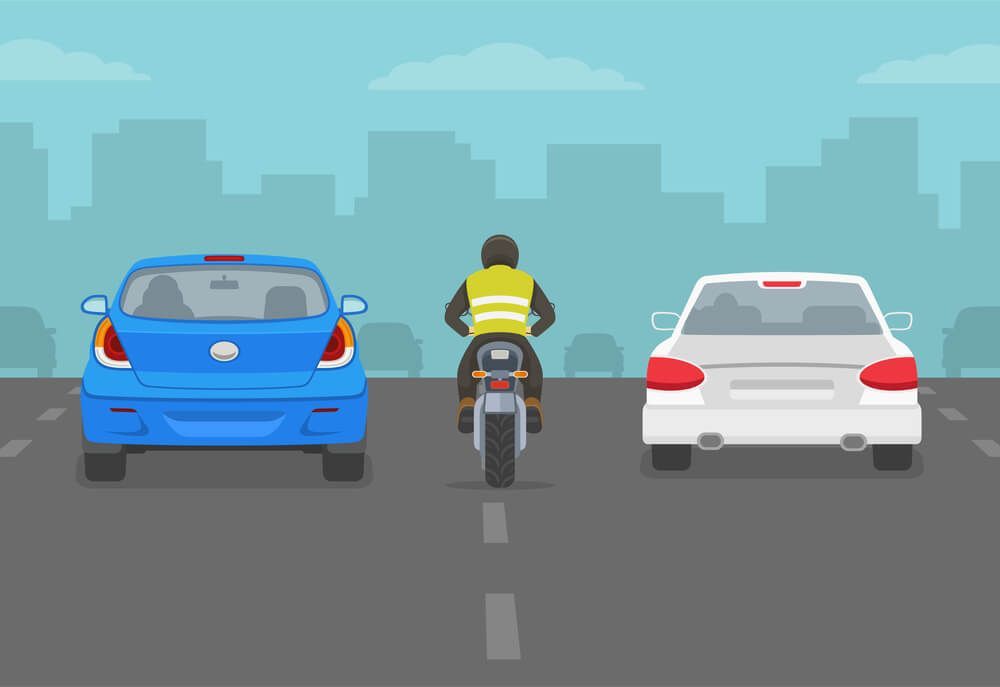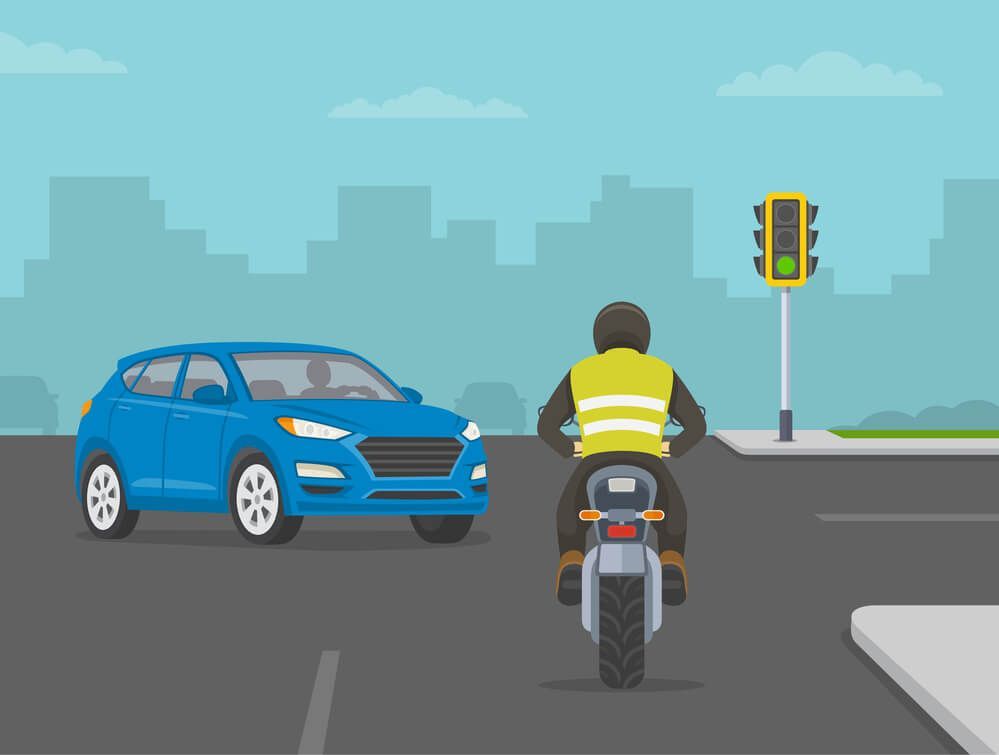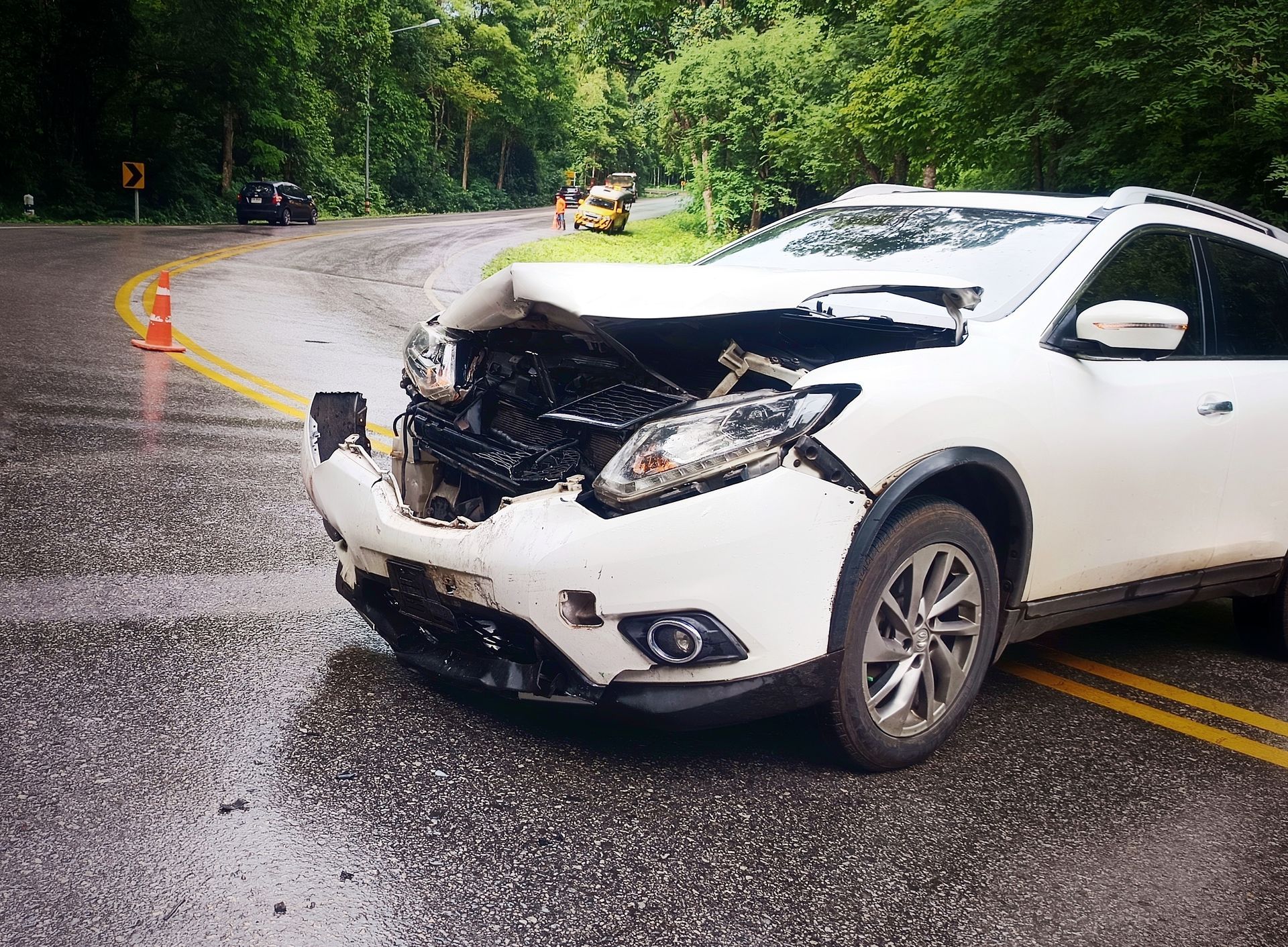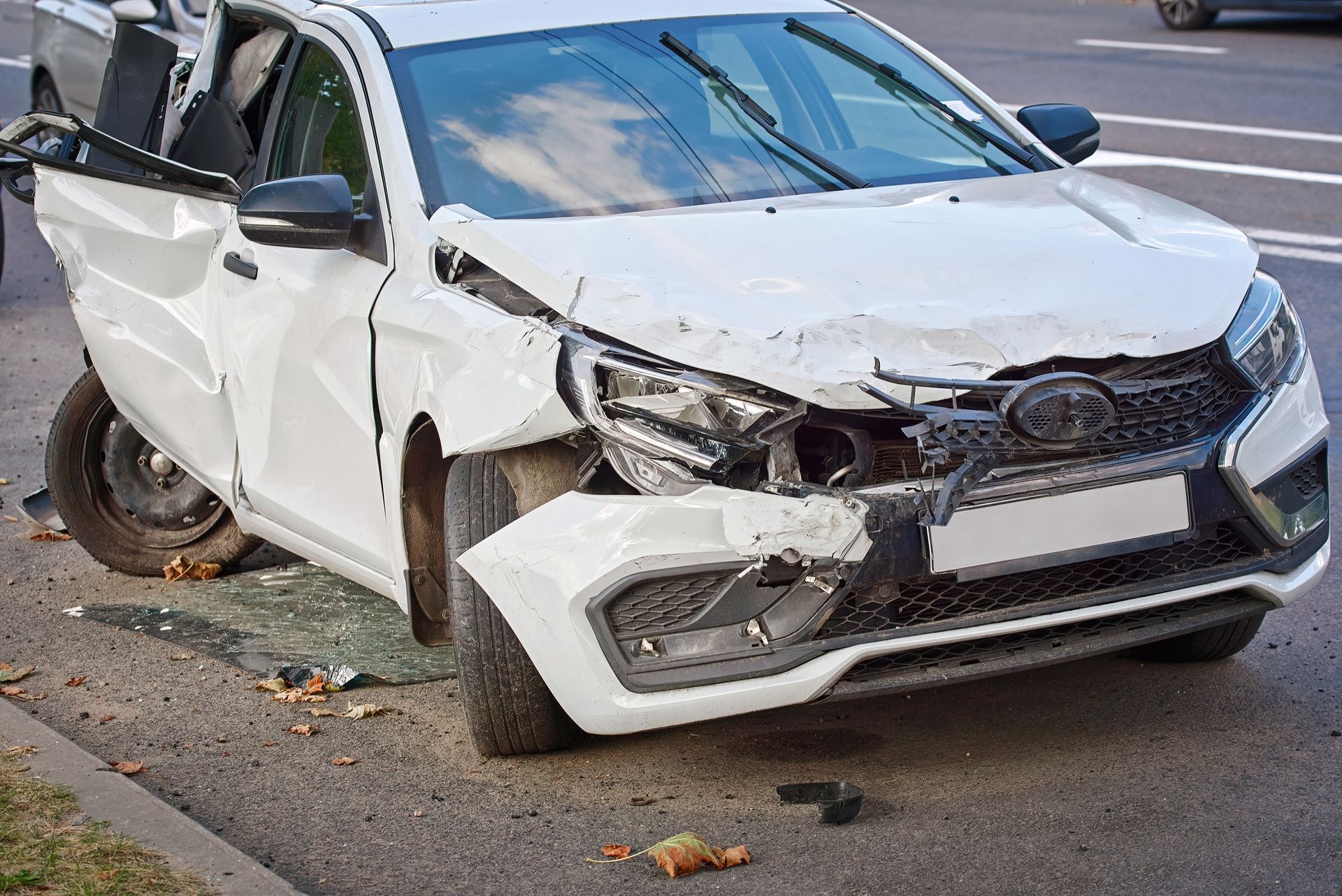Sargon Law Blog
Recent Blog Posts
Can Motorcycles Split Lanes in Colorado?
Motorcyclists love the freedom that comes with vrooming down the highway on a nice day. They don't love the frustration that comes with being stuck in back-to-back traffic. If you drive a motorcycle in Colorado, you've probably wondered if you're legally required to sit and wait in your lane just like everybody else during times of bumper-to-bumper traffic. Lucky for motorcyclists in the Centennial State, there's a new state law that addresses the question of whether or not motorcycles can lane split in Colorado. In this post, we'll discuss the conditions under which motorcycles can split lanes in Colorado legally, as well as some important safety considerations.
What Is Lane Splitting?

Lane splitting occurs when a motorcyclist rides between two lanes of traffic moving in the same direction. This maneuver allows motorcycles to bypass congested traffic and reach their destination more quickly. Lane splitting laws vary across the United States and around the world. If you operate a motorcycle, it is therefore important to familiarize yourself with the local lane splitting laws in your jurisdiction.
Is Lane Splitting Legal in Colorado?
As of April 2024, lane splitting is now legal in Colorado under specific conditions. Governor Jared Polis signed bill SB24-079, allowing motorcyclists to legally split lanes under certain conditions:
- Stopped Vehicles: Motorcyclists can overtake or pass another motor vehicle in the same lane if the other vehicle is stopped.
- Lane Width: The road must have lanes wide enough to pass safely.
- Speed Limit: The motorcycle must be moving at 15 miles per hour or less.
- Prudent Operation: Conditions must permit prudent operation of the motorcycle while overtaking or passing.
However, motorcyclists must not overtake or pass:
- On the Right Shoulder: Passing on the right shoulder is prohibited.
- Right of Farthest Right-Hand Lane: Motorcyclists cannot pass to the right of a vehicle in the farthest right-hand lane if the highway is not limited access.
- Opposite Direction Lanes: Passing in a lane of traffic moving in the opposite direction is not allowed.
This authorization to overtake or pass is set to be repealed on September 1, 2027. The Colorado Department of Transportation will collect safety data on the bill and issue a report to the General Assembly before the repeal.
Understanding the Risks of Lane Splitting
Although lane splitting can help motorcyclists navigate traffic more efficiently, it also comes with significant risks. Here are some potential dangers associated with lane splitting:
- Limited Visibility: Motorcycles are smaller than cars, making them harder for drivers to see, especially when maneuvering between lanes.
- Sudden Lane Changes: Drivers may change lanes without signaling or checking their blind spots, increasing the risk of collision.
- Road Debris: Debris on the road can be hazardous for motorcyclists, particularly when riding between lanes.
- Driver Distraction: Distracted drivers may not notice a motorcycle splitting lanes, leading to accidents.
- Close Proximity: Riding close to other vehicles leaves little room for error, making it more difficult to avoid collisions.
Given the risks associated with lane splitting, it is important for motorcyclists to prioritize safety and comply with traffic laws. Your safety and the safety of others should always trump speed and convenience.
Alternatives to Lane Splitting

Though lane splitting is currently allowed under certain conditions in Colorado, motorcyclists in the Centennial State can also use other strategies to navigate traffic safely and legally. Here are some alternatives to lane splitting if you're operating a motorcycle:
<ol>
Lane Filtering: Lane filtering involves motorcyclists moving between stopped vehicles at a low speed. This can be a useful strategy when traffic is at a standstill.
Carpool Lanes: Motorcyclists <a href="https://ops.fhwa.dot.gov/freewaymgmt/faq.htm#:~:text=Motorcycles%20are%20permitted%20by%20federal,carry%20more%20than%20one%20person." target="_blank" rel="noopener">can use carpool lanes</a>, which are often less congested than regular lanes.
Staggered Riding: Riding in a staggered formation with other motorcyclists can improve visibility and safety.
Route Planning: Plan your route to avoid high-traffic areas and peak hours.
Defensive Riding: Always ride defensively and stay alert to the movements of other vehicles.
</ol>
<h2>Safety Tips for Motorcyclists
Regardless of the legality of lane splitting, safety should always be a top priority for motorcyclists. Here are some tips to help you stay safe on the road while you enjoy your motorcycle:
<ul>
Wear Protective Gear: Always wear a helmet, gloves, jacket and other protective gear to reduce the risk of injury.
Stay Visible: Use reflective clothing and keep your headlights on to enhance visibility.
Follow Traffic Laws: Obey all traffic signals, signs and speed limits to reduce the risk of accidents.
Use Signals: Always signal your intentions to other drivers to avoid misunderstandings and collisions.
Maintain Safe Distances: Keep a safe distance from other vehicles to allow for adequate reaction time.
Stay Sober: Never ride under the influence of alcohol or drugs.
</ul>
<h2>How Sargon Law Group Can Help
If you have been involved in a motorcycle accident in Colorado, we are here to help you understand your rights and receive the compensation you deserve. At Sargon Law Group, we specialize in personal injury cases and are dedicated to helping accident victims receive proper compensation and care. Our experienced team can provide the guidance and support you need during this challenging time.
<h2>Contact Us for Legal Assistance
With the recent changes to Colorado's lane-splitting laws, motorcyclists now have more options to navigate traffic and reach their destination faster. Understanding the risks and adhering to the specified conditions can help prevent accidents and ensure a safer riding experience for all.
If you have questions about motorcycle laws in Colorado or need legal assistance after an accident, reach out to the <a href="https://www.sargonlawgroup.com/phoenix-motorcycle-accident-lawyer/">Phoenix motorcycle accident attorneys at Sargon Law Group</a> for help. We are committed to helping victims of accidents receive the compensation and care that they deserve. <a href="https://www.sargonlawgroup.com/contact/">Contact us today</a> to schedule a consultation with one of our <a href="/">injury attorneys in Phoenix</a>. Your safety and well-being are our top priorities.





